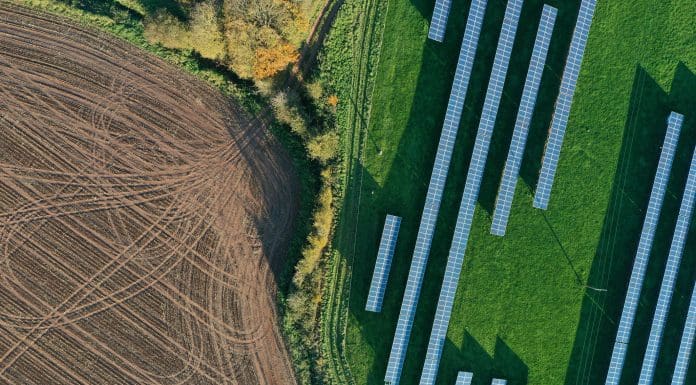A new solar farms research project will study the biodiversity outcome of the proposed 380-hectare Longfield Solar Farm in Essex
The solar farms research project will take place over a six-year period. PhD students from the University of Exeter will conduct studies on the Longfield site under the supervision of RSK Biocensus and EDF Renewables UK.
Longfield Solar Farm will generate enough energy to supply around 96,000 homes per year and will be the largest facility of its kind in the UK upon completion.
During the project, the PhD students will have the opportunity to visit other EDF solar farm sites across the UK and will work closely with RSK Biocensus ecologists conducting surveys and providing advice to solar farm clients.
Understanding the biodiversity opportunities of solar farms
RSK Biocensus director of research and co-supervisor, Professor Richard Delahay said: “The conversion of former agricultural land for solar developments creates a real opportunity for biodiversity enhancements. But, currently, we don’t really understand how best to realise these potential benefits, so that’s exactly what this project will be aiming to find out. We hope that the research being undertaken on EDF’s Longfield Solar Farm and elsewhere will help us to establish best practice for creating and managing biodiverse habitats on these sites.”
The research is likely to include testing different approaches to establish biodiverse habitats in a dedicated part of the Longfield Solar Farm site. Richard continued: “We hope to have a number of experimental plots where we will sow different seed mixes, and as the plants and grasses grow, we will look at various ecological indicators of a healthy, diverse ecosystem. These may include things such as the abundance of pollinators and other insects, plant diversity and measures of soil health. This will help us to understand what interventions are delivering the greatest benefits in terms of both biodiversity and retaining the agricultural potential of the land.”
Richard said: “The involvement of RSK Biocensus in this EDF-funded study will ensure that the project design and outcomes provide the evidence base required to realise the enormous potential for solar farm developments to deliver positive outcomes for local biodiversity.”
Long term research and study will inform future decisions on solar farms
Exeter University director of education and student experience Jon Bennie added: “While solar farms are an important part of the transition to a low-carbon economy, if managed appropriately they could also present significant opportunities to provide habitat for wildlife, to enhance biodiversity and to maintain healthy soils and ecosystems.
“However, there is a lack of research on the best way to achieve this. Our long-term study will allow us to learn how to maximise these environmental gains and minimise potential risks involved in the construction and operation of solar farms, and so inform management decisions.”
The project started in September 2024 and will run for six years.
The post Six-year solar farms research project to identify biodiversity benefits appeared first on Planning, Building & Construction Today.


